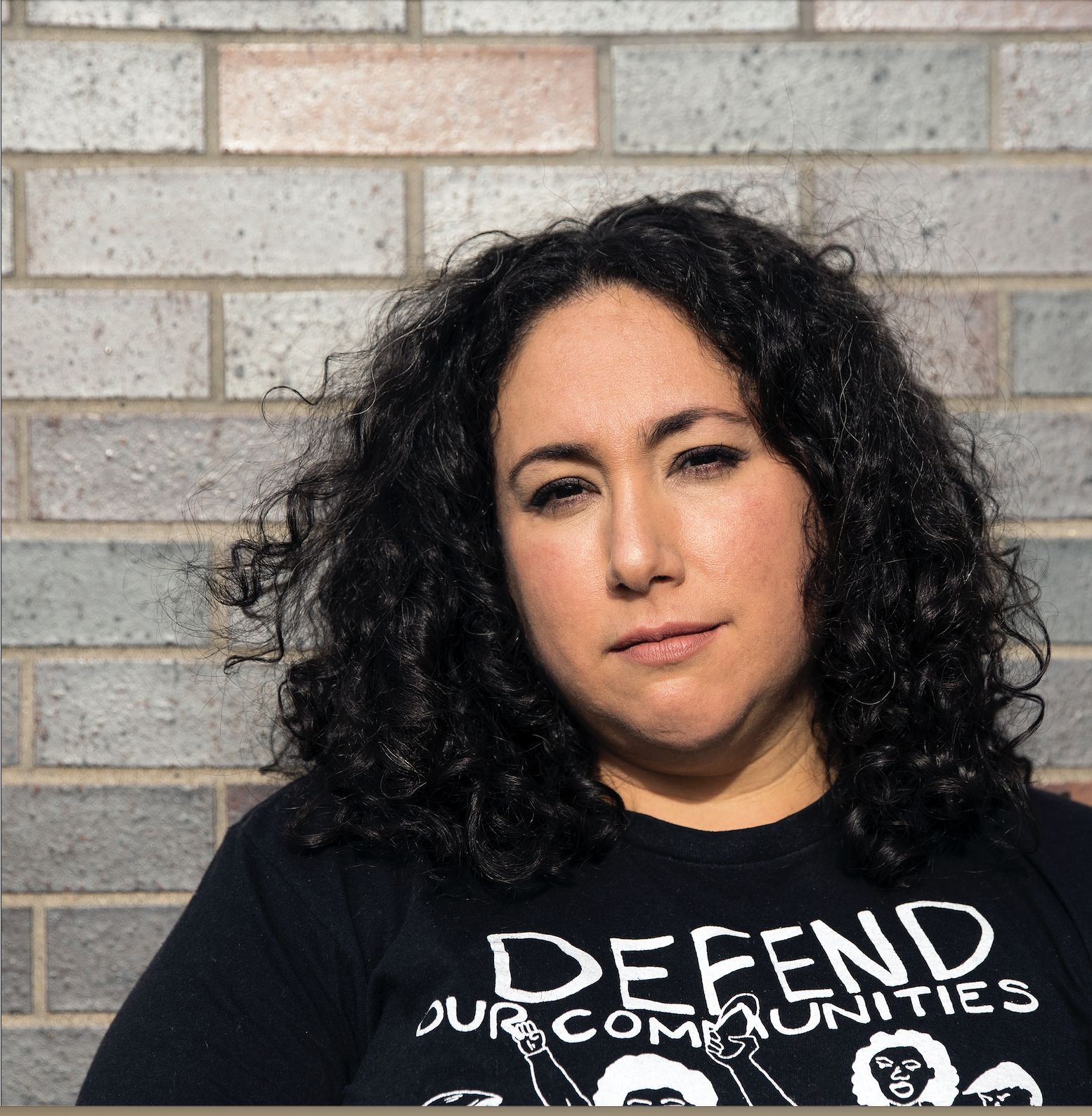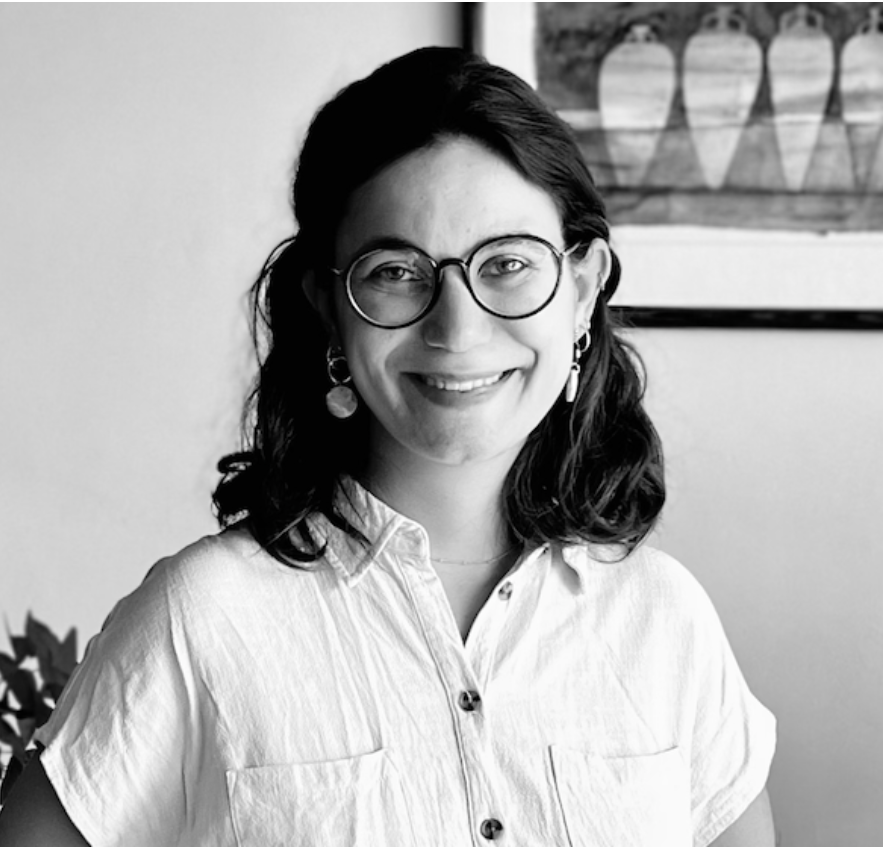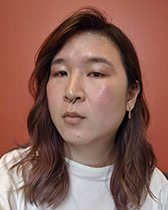2022-2023 CRES Fellows
Faculty Fellows
 Julie Lee Merseth
Julie Lee Merseth
Department of Political Science
Project: Anti-Asian Racism and Asian American Political Resistance
This project examines Asian American beliefs about anti-Asian racism and collective political resistance in the United States. Amidst heightened racial anxieties and xenophobic impulses during the COVID-19 pandemic, the need to understand Asian American political (in)action in response to surges in racist rhetoric and hate crimes is increasingly urgent. Yet we still know too little about when and why some Asian Americans perceive a need to organize as a group, and potentially across groups, while others do not. In this study, I investigate how anti-Asian racism beliefs among Asian Americans shape their responses to it, paying close attention to identity, experience, and status differences within the group.
graduate Fellows
 Risa Puleo
Risa Puleo
Department of Art History
Project: A Sheep's View of the Art History of the Americas
In the 1940s, Native American objects began to be displayed as "art" after a century of interpretation under the terms of anthropological “artifact.” A Sheep's View of Native Objects interprets the politics of taxonomical shift and museological category jumping through indigenous epistemologies. The Iberian Churra, a breed of Spanish sheep imported to the Americas at conquest, is enlisted as an avatar and historical agent in this task. The project follows the Churra through the Central Mexican Valley in the 16th century where it aids the Spanish in dispossession , along migratory pathways established at the end of the ice age, into the homelands of the Diné people, where it is integrated into kinship networks, and ultimately, objects made from the sheep’s wool into the Museum of Modern Art, to reveal how the study of native art in the U.S. has been shaped by colonial discourses.
 Sonia Planson
Sonia Planson
Department of Sociology
Project: Assimilation Norms and Cultural Maintenance Among Immigrants: a US–France Comparison
This dissertation investigates assimilationism and the maintenance of cultural practices among immigrant families in transnational comparison. Based on interviews with diverse immigrant parents and second-generation teenagers in Chicago and in Paris, I research their experiences with intergenerational cultural transmission (how foreign-born parents pass on cultural markers and practices, how children receive them). In particular, I am interested in examining how pressures to assimilate are racialized and, ultimately, how race shapes immigrants' experiences with cultural practices and identity transmission.
 Erique Zhang
Erique Zhang
Department of Communication Studies
Project: Trans Femme of Color Beauty Workshops
Positive and nuanced representations of transgender people have become more commonplace since the early-2010s, leading TIME magazine to declare 2014 the "Transgender Tipping Point." Since then, however, trans scholars and activists have questioned the promise of visibility, noting that the rise of trans representation has coincided with a concurrent rise in physical and political violence directed towards trans communities. This project takes beauty as a site of contestation, asking how media representations of trans women communicate ideologies about beauty standards and respectable trans womanhood. Combining focus group methods with participatory visual methods, I convene groups of trans women of color to discuss beauty ideals, media representation, and trans femme of color experience, before asking participants to create makeup looks on themselves that reflect their ideas about beauty. In doing so, I aim to explore the intersecting structures of transfemininity and race, and to imagine what an alternative trans femme of color beauty might look like
Undergraduate Fellows
 Laurisa Sastoque
Laurisa Sastoque
Department of Political Science
Project: Crime, Community, and Labor: Colombian Immigrants in the U.S. East Coast during the War on Drugs 1979-1990.
This project looks at the shifting environment for Colombian immigrants in the United States as the U.S. War on Drugs began to largely involve Colombians in anti-drug policies and media. It approaches the War on Drugs from the bottom-up and asks the questions, did Colombian immigrants understand the War on Drugs as a war on their community? Did the stigmatization of Colombians as drug traffickers act as a divisive or harmonizing force in the community? By looking at a variety of primary sources including periodicals, radio and TV transmissions, and court cases, this study will elucidate how the role of Colombian immigrant in the United States was redefined along the axes of crime, community, and labor in U.S. society at this pivotal moment of drug trade history.
 Eivan Herrera-Valdez
Eivan Herrera-Valdez
Latina and Latino Studies Program
Project: Transnational Lineages: A Three-Generational Analysis of Latinx Homosexualities
My research project, Transnational Lineages: A Three-Generational Analysis of Latinx Homosexualities, uses testimonios to contextualize and analyze intergenerational experiences related to homosexuality within a Latinx family. These exploratory interviews critically delve into topics such as religion, gender, motherhood, family, and trauma. I investigate how time, place, and culture affect objective and subjective ideas of homosexuality within different cohorts of a Mexican family. Grounded in an intersectionality framework, my project aims to illuminate the various mechanisms that alter perceptions of taboo subjects such as homosexuality.
 Alex Chun
Alex Chun
Medill School of Journalism
Project: Disidentification on Erotic Social Media Platforms
